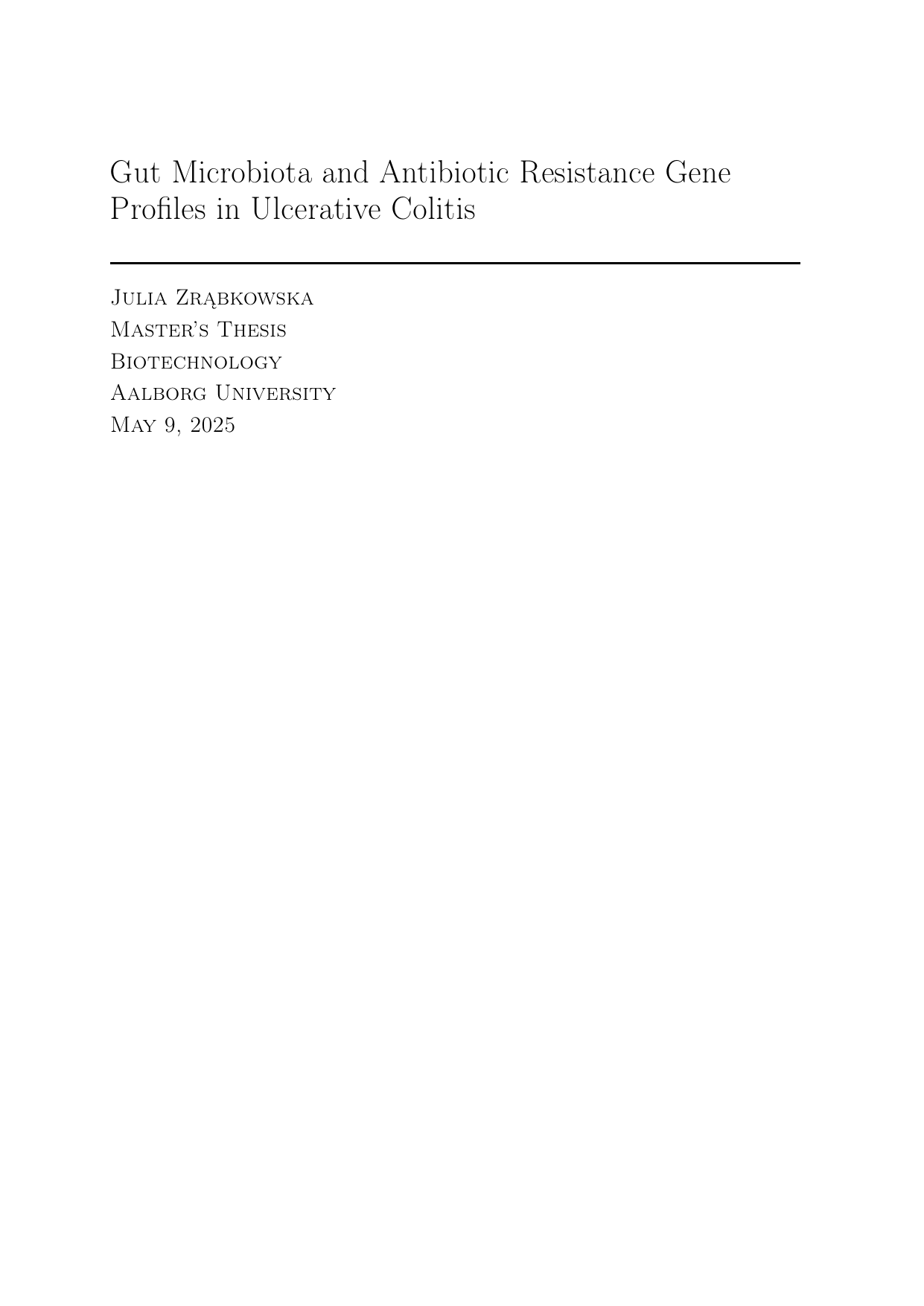
Gut Microbiota and Antibiotic Resistance Gene Profiles in Ulcerative Colitis
Author
Term
4. term
Education
Publication year
2025
Submitted on
2025-05-12
Pages
60
Abstract
The gut microbiota plays a key role in the pathogenesis of ulcerative colitis (UC), a form of inflammatory bowel disease (IBD) characterised by chronic relapsing inflammation of the gastrointestinal tract. The onset and progression of UC have been associated with intestinal dysbiosis and various environmental factors. Despite extensive research, the precise aetiology of IBD remains incompletely understood, presenting challenges in the development of effective treatment strategies. This study aimed to investigate the bacterial community structure and its correlation with the presence of antibiotic resistance genes (ARGs) in DNA isolated from individuals diagnosed with UC at varying stages of disease severity. To achieve this, 16S rRNA gene amplicon sequencing was used to profile microbial taxonomy, followed by bioinformatic analysis to explore differences associated with disease status and current use of medications. In parallel, a highly sensitive method, qPCR was used to detect the presence of selected ARGs. The results revealed notable differences in the composition of the gut microbiota of UC patients compared to healthy controls. Furthermore, the presence of ARGs appeared to be patient-specific and reflective of microbiota dysbiosis.
Documents
